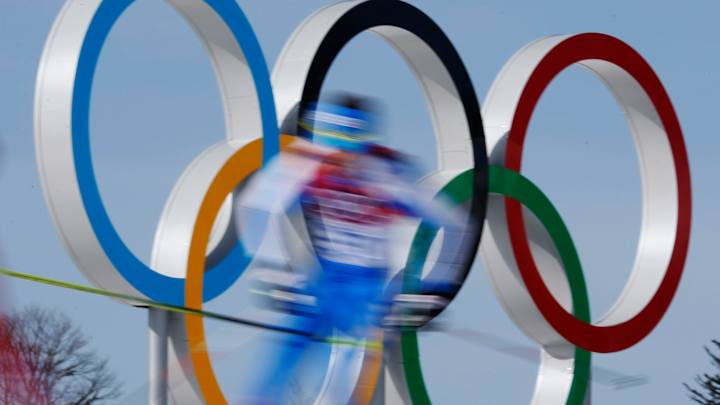Analysis: Most troubling is Russia's reaction to scandal

Troubling as the details of the McLaren Report were, a news item out of Russia earlier this week was equally so. The new chair of the country's ''revamped'' anti-doping agency will be Yelena Isinbayeva, the pole vault great who has spent the past year thumbing her nose at all the evidence and at those who've dared to mete out punishment for the malfeasance.
Isinbayeva's appointment to the RUSADA board, made a mere two days before Part 2 of the McLaren report arrived, was all you needed to conclude that either Russia does not fully grasp the depths of depravity that Richard McLaren painstakingly detailed in his 144-page report or, maybe worse, that it just doesn't care.
The details in McLaren's report, released Friday, are as predictable as they are terrible. The 1,000 athletes and who-knows-how-many government and quasi-government officials involved in Russia's doping scandal are symbols not of a system that failed to catch its cheats, but of one that was undercut by the very people we'd presume were hired to protect it.
Isinbayeva herself was never implicated in the doping scandal, and when all but one member of the Russian track team was barred from the Rio Olympics, she paid a heavy price. The two-time gold medalist and world-record holder stayed back because track's international federation had the courage to declare that anyone involved in the Russian sports machine simply could not compete, given the evidence that had been unearthed to that point.
Isinbayeva called the suspension ''a blatant political order,'' claiming, as many in her government did, that Russia was being unfairly targeted as part of an East vs. West power play. She called it ''a violation of human rights,'' and vowed to ''prove to the IAAF and World Anti-Doping Agency that they made the wrong decision.'' After Friday's report came out, she said ''of course it's in my interests not to allow the situation which I ended up in, so that our athletes from our country are treated the same as everyone else.''
Though she was applauded - and is now being rewarded - in her own country and elsewhere for taking this stance, her words are not those of someone who either grasps the seriousness of the problem, or is devoted to bringing meaningful change.
Is anyone in Russia devoted to that? Hours after the report went public, Russian deputy prime minister Vitaly Mutko, implicated in the report as an architect of the doping program, said the country would ''move into the legal arena,'' and that ''it was simply not realistic ... to do what they are accusing us of.''
Indeed, were it not for the excruciating detail McLaren took to conduct his research, it would be hard to believe intelligence agents could open sealed doping bottles and replace tainted urine with clean to beat the drug-testing system at the Sochi Games. McLaren found Russians who won 15 medals in Sochi had their samples tampered with. He said Russia's doping program also corrupted the 2012 London Olympics on an ''unprecedented scale.''
Those were Isinbayeva's last games.
Since being barred from Rio, she has retired from the sport, won a spot on the IOC and, now, become the chair of RUSADA.
WADA protested, saying it was supposed to have been consulted about important moves, such as the naming of RUSADA's new board.
For WADA to hope that anyone - say, the IOC - will have its back on this is only that: hoping.
The IOC is the same body that rejected WADA's call to ban the entire Russian team from the Rio Games. It argued that it had to walk a careful line between anti-doping and politics, and that it needed to carefully weigh the consequences of ''collective responsibility versus individual justice,'' while basically ignoring the ''individual justice'' owed to the dozens of athletes who have been and might still be beaten by cheating Russians.
How many of those Russians were in Rio de Janeiro?
Time will tell. Though the track team was banned, Russia still sent 271 athletes to the Summer Games, and they combined for 55 medals.
McLaren is forwarding the evidence from his report to the IOC and to the individual sports, and those bodies will decide what punishments to levy.
Meanwhile, the Winter Olympics are only 14 months away, and already, questions about whether Russia should be eligible for those games are being asked.
Here's one answer: Based on what we know from the McLaren Report, combined with Russia's reaction and the IOC's history of handling these cases in something far weaker than zero-tolerance fashion, athletes who head to South Korea should presume they are not on a level playing field - and then, simply hope for the best.
